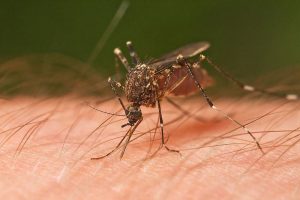Everybody hates mosquitoes. Not only are they annoying pests that bite us during the summertime, but they are also transmitters of the parasite that spreads malaria–Plasmodium. However, scientists believe that they have found a way to wipe out malaria for future generations. By using CRISPR in order to alter the fibrinogen-related protein 1 (FREP1), Plasmodium can be stopped from spreading amongst human beings. The alteration stops the plasmodium from reaching the mosquitoes’ salvatory glands, effectively halting transmission into the human bloodstream.
However, although CRISPR is a lot less drastic than simply wiping out the mosquito population, it does come with minor setbacks. The alteration made to the FREP1 gene causes the fertility of the mosquito as well as the egg-hatching rate to drop. These effects cause the reproduction rates of the altered mosquitoes to be significantly lower than that of other mosquitoes. If the modified mosquitoes are not able to reproduce, then the genetic modifications are unlikely to have any real effect on the transmission of malaria since they are not being passed on generationally.
The solution? Alter the female mosquitoes. Only female mosquitoes transmit malaria, so scientists have realized that altering the genetic code of female mosquitoes might be the way to solve the problem with reproduction. This way, the mosquitoes are able to maintain the genetic resistance to Plasmodium whilst avoiding the dramatic drop in reproduction.
Even though the alteration of mosquitoes’ genetics is definitely a scientific feat, there are no certainties when it comes to this attempt to stop malaria. Nobody is positive about whether or not CRISPR is the solution, but it is definitely a huge step in the right direction.



Leave a Reply